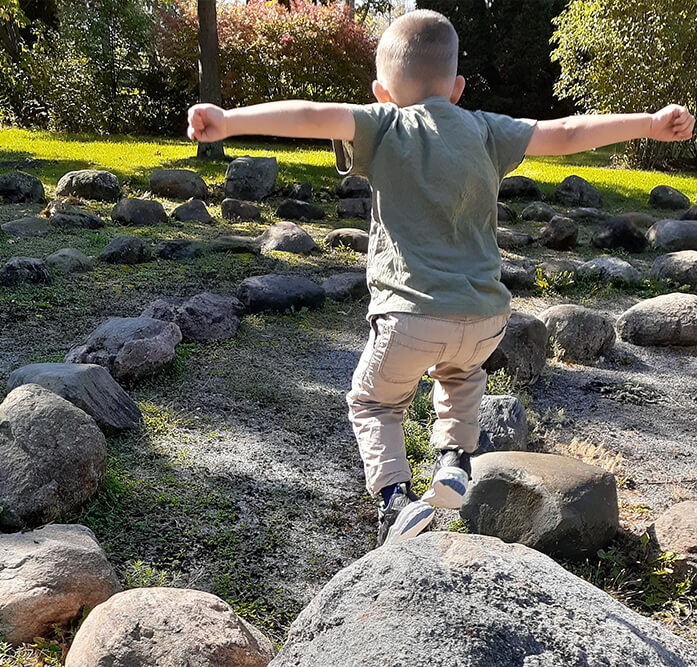Our child care programs are licensed, and government inspected.

Family Communication
The YCD Parent Handbook is provided to both prospective families and those enrolled.
The Parent Handbook will be circulated to current families following any instrumental change and we require confirmation of receipt of the updated version(s).
Registered families will receive regular electronic communication and/or written communication from your program’s supervisor. It is important to read all emails and notices carefully as they contain relevant information.
Note: By enrolling your child in our program, you automatically give consent to YCD to contact you using the e-mail address you have provided. If for some reason you do not want to be contacted by e-mail, please inform your program’s supervisor.
If at any time you have questions or concerns, feel free to talk to the educators, supervisor, or the Executive Director.
YCD’s Safe Arrival Program
Forgotten Baby Syndrome (FBS) refers to accidentally leaving a baby or young child in a locked car, often with tragic results. We hear of these tragic events each summer, particularly when the daily routine of families alter.
One of the prevention strategies, identified in research, is to ensure that child care programs have a system in place to connect with families should a child not arrive in care when expected.
In 2018, YCD developed protocol regarding the safe arrival of children to compliment those in place in York Region Schools. This became a requirement from the Ministry of Education in 2024.
If your child(ren) will be absent, please contact the program.
If not already informed of an absence, YCD educators will contact families whose children do not arrive when they are expected in a program.
We must work together to ensure the safety of our children.
Curriculum
In the child care and school age programs our pedagogy is emergent. An emergent curriculum is a way of planning a program based on the children’s interests and passions. The planning of an emergent curriculum requires Registered Early Childhood Educators (RECEs) to observe children, document what they see, and use this information to plan curriculum.
Rather than starting with an existing lesson plan, emergent curriculum starts with the children’s interests. When the teacher notices the children taking interest in a particular subject, the teacher will introduce materials or experiences to further the children’s interest and knowledge. Daily documentation by the teachers allows parents to see what activities their children have engaged in. The child care documentation is formed around the How Does Learning Happen? Document which indicates what ‘learning’ is observed in the activity.
Storypark
Our child care program staff share documentation of experiences and learnings on Storypark, which is the digital platform accessed by our families. The school aged programs will begin posting documentation for families, through Storypark, beginning in early 2021.
Outdoor Programming
Child care programs will experience daily outdoor time, weather permitting. a minimum of two hours daily. Our school aged programs will be outdoor a minimum of 30 minutes daily after school. The COVID-19 pandemic has led public health and children’s mental health agencies to stress the importance of children being outdoor for as much of the day as possible. The risk of disease transmission is reduced outdoors, and children’s mental wellness is supported when time is spent in nature.
Our Staff
Our Early Childhood Educators are professionals registered with the College of Early Childhood Educators. All educators and supervisors are trained in Standard First Aid and CPR-C, Accessibility for Ontarians with Disabilities (AODA), Ontario Human Rights training and Health & Safety Awareness. Designated educators are trained in Workplace Hazardous Materials Information System (WHMIS) and hold Food Handling Certification.
Educators may have additional qualifications which may include Ontario College of Teachers (OCT), Early Interventionist Resource Teacher, Child & Youth Worker, Recreation, Social Work, Child Care etc.
All educators, supervisors, volunteers, and students require a Police Vulnerable Sector Check (PVSC) prior to interacting with children and every five (5) years thereafter. In addition, Annual Offence Declarations are completed. Individuals (with other agencies) who attend our programs for example, early interventionists, therapists, yoga instructors, bus drivers, will provide vulnerable sector screening verification prior to interacting with the children.
All educators, supervisors, volunteers, and students must provide proof of medical requirements according to the local health authority, for example, TB tests, rubella immunization, tetanus etc.


